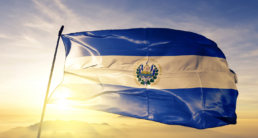In a surprising move, the U.S. State Department recently lowered its travel advisory for El Salvador to Level 1, suggesting that the country is now among the safest travel destinations in the world. This decision places El Salvador in the same tier as other Western European nations such as Ireland and Norway, despite ongoing concerns about the country’s political climate and human rights record.
The Rise of Bukele
President Nayib Bukele has drawn international attention for his tough stance on crime, particularly gang violence. His administration’s sweeping crackdown has led to the incarceration of thousands, often without formal charges or trials. Human rights groups have raised alarms over the erosion of civil liberties, including reports of arbitrary detention and the weakening of judicial independence.
The United States has taken steps to deepen its cooperation with Bukele and the government of El Salvador. Under a $6 million agreement, individuals deported from the U.S.—many without any criminal convictions—have been to sent to Salvadoran prisons based on unproved allegations of gang affiliation. Immigrants have been labeled as “terrorists” or “gangsters” by the Department of Homeland Security despite a lack of formal charges.
The Case of Abrego Garcia
One case that has brought this issue into focus is that of Abrego Garcia. He was deported on the grounds that he was a member of the street gang MS-13, but these claims have been proven to not be true. Garcia was then sent to a Salvadoran prison, despite having no criminal record in either country. The U.S. Supreme Court unanimously ruled this decision as unconstitutional and called for the administration to facilitate his return. However, the Salvadoran government has refused to release hum, and the U.S. has yet to act.
Deportation as Foreign Policy
Statements from officials in both governments suggest a growing willingness to treat deportation not just as an immigration enforcement tool, but as a component of foreign policy. Secretary of State Rubio emphasized that foreign policy is shaped by the executive branch, not the courts, while President Trump has openly praised the idea of using Salvadoran prisons for U.S. deportees.
These developments mark a significant shift in U.S. policy and raise serious concerns about the use of foreign partnerships to sidestep due process. With more than 230 immigrants already sent to Salvadoran prisons under questionable circumstances, the integrity of America’s immigration system—ad its commitment to human rights—is increasingly under scrutiny.
Ready to have Berardi on your side?
Whether you’re a business looking to hire or a professional hoping to relocate, immigration law can be complicated. But you don’t have to do it alone. Put our experience to work for you.



